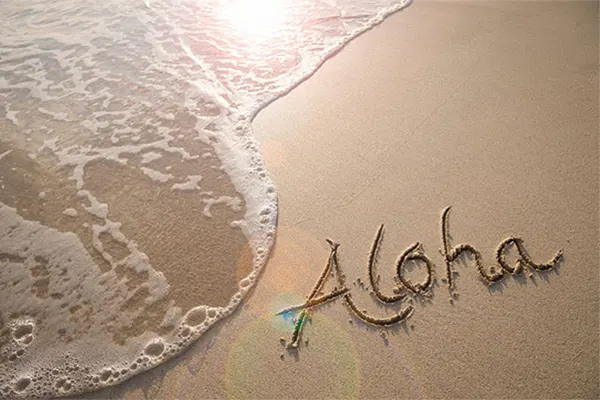Fly to the beautiful island of Maui and you’ll find some of the best hotels, restaurants, and spas. However, if you’re from the mainland, you might be spotted as a “haole” (foreigner) for saying something like “I’m thrilled to be ‘in’ Maui!”
The dead giveaway? Using “in” instead of “on”.

Is It “In” or “On”? The Proper Way to Say It According to Locals
Table of Contents
Locals will correct you by informing you that you’re “on” the island of Maui and “in” the state of Hawaii.
After switching from “in” to “on”, you’ll notice the “kama’ai’na” (long-time Hawaiian residents) won’t peg you as a tourist so easily.
Remember, visitors can be “in” a city, state, or country, but you can only be “on” an island.
Why Do We Say “In” Maui to Begin With?
Many tourists make this mistake and it might be because Maui can easily, but mistakenly, be thought of as its own state—being the second largest of the Hawaiian islands.
Maui is divided into several districts including Lahaina, Wailuku, Makawao, and Hana, as well as five regions including West Maui, Central Maui, South Maui, Upcountry Maui, and East Maui.
Even with its diverse range of contrasting landscapes including Haleakala’s volcano, the winding road to Hana, the historic old town of Lahaina, the beautiful beaches of Wailea, the shops in laid back Paia, the hiking trails at Waianapanapa State Park, or the peaceful Seven Sacred Pools, Maui remains one big island.
What About Hawaii as a State vs. Hawaii the Island?
The same grammatical logic applies regarding the state vs. the island of Hawaii. Locals know that you are “on” the island of Hawaii or on the mainland, but you are in Hawaii the state.
A few other tips to avoid being tagged a tourist include using “the states” to refer to the continental United States. Hawaii is the 50th state, and locals refer to the continental U.S. states as “the mainland” and never “the states.”
Also avoid calling local residents Hawaiians, as those that live on Maui call themselves “locals”. A Hawaiian is of Hawaiian ancestry and is also a local, but someone who moved to Maui and resides there is not Hawaiian.
Additionally, avoid referring to local residents or Hawaiians as “natives.”
A Quick Overview of the Hawaiian Language
Hawaiian did not become a spoken and written language until missionaries arrived in the 1820s. Prior to that, Hawaiians preserved their stories and history through poems, chants, and songs. The missionaries used the English alphabet to record the sounds they heard the Hawaiians speaking.
One of the many Polynesian languages, Hawaiian is a language full of surprises. It consists of five vowels (a, e, i, o and u), seven consonants (h, k, l, m, n, p, and w), and one okina that is an apostrophe.
Every word has at least one vowel; every word and syllable ends in a vowel. No word has two consecutive consonants.
The next-to-last syllable is always the one that is stressed, and people commonly make the spelling mistake of writing one word as two, such as “mahi mahi,” when the correct spelling of the fish is “mahimahi”.
What are Other Local Verbalisms to Know When Visiting Maui?
When visiting Maui, you will probably hear a few Hawaiian phrases you already know such as aloha (love, hello and goodbye) and mahalo (thank you). These words, in addition to hula, mumu, lei, and ukulele are some more familiar words that English has borrowed from the islands.
Islanders speak mostly English, but there are still many words from the Hawaiian language that are used in everyday conversation on Maui. Hawaiians still say:
- wahine (women or wife)
- kane (man or husband)
- pau hana (finished working, happy hour)
- e komo mai (welcome, come in)
- ohana (family, relative)
- shaka (hi, bye and thank you)
- moana (ocean)
- a hui hou (until we meet again)
- grinds (delicious food)
- sllippahs (flip-flops or sandals)
The Hawaiian language has other interesting features in addition to its unique pronunciation. Instead of using “north, south, east and west,” when talking about directions, locals use “makai,” meaning “towards the sea” and “mauka” meaning “towards to mountains”.
Additionally, the word “mahalo” is used frequently, but there is technically no real equivalent of “you are welcome.” Islanders, known for their hospitality, take this response for granted.
If you venture upcountry, you might hear Hawaiian local tongue or pidgin English, a mishmash of slang and Hawaiian words including “Eh fo’real, brah” (It’s true, brother) and “Broke da mouth” (tastes really good).
Whether you add a few local words into conversations held on Maui or you keep to your mother tongue, the aloha spirit will be present everywhere you travel.
